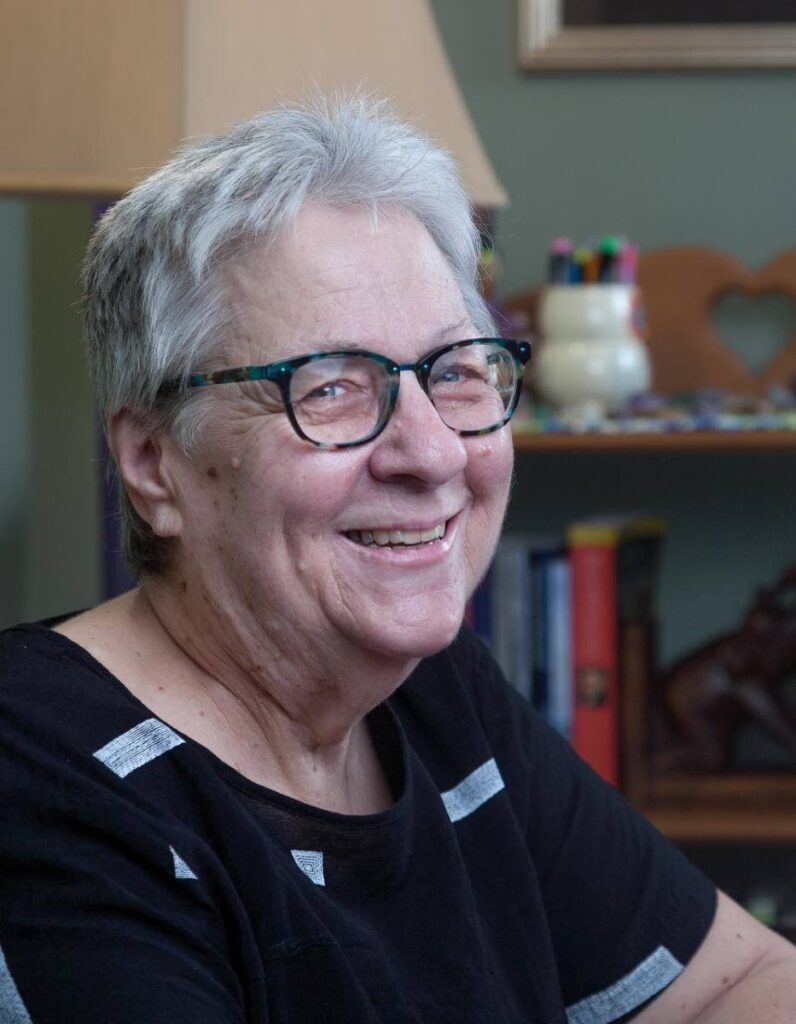A deserving chance to succeed

DEBBIE JACOB
WHENEVER inmates I have taught in YTC (now YTRC) and prisons win their cases, I always feel sad for the circumstances that landed my students in prison more than I feel happy for their release. So was the case with Jonathan Bruce, my former student in YTC.
Freedom always seems bittersweet because it does not symbolise a clean slate. Instead, it means continuous judgment and probable scorn from society along with unspeakable pressure to stay on the right track. Freedom often comes after the trauma of a decade-long wait for inmates' trials. When I first taught at YTC, nearly 15 years ago, remand lasted about four years. Bruce waited nine years to be found not guilty of murder by High Court Justice Geoffrey Henderson on July 13.
That we can now throw children, teenagers – and even adults – in prison to languish for nearly a decade or more is unconscionable. Bruce’s case haunts me on many levels. I am most moved because I can still see the sad, stony, distant stare on the teenager’s face when he entered my English class in YTC shortly after being sent there.
Bruce had been in the middle of CXC exams when he stabbed Renaldo Dixon to death on May 27, 2013, at Waterloo Secondary School. He received an immediate trial by the court of public opinion, which never knew the facts. Sadly, our public outrage at school violence never holds the government or schools accountable for not providing adequate programmes to address the bullying, rage and violence that plague our schools.
When Bruce was arrested, I remember students from his school calling into radio programmes to say that he had been bullied. They felt he acted out of self-defence. Justice Henderson eventually agreed.
Bruce’s case is troublesome on many levels. Carrying knives to school and stabbing someone to death are never condonable actions so how do we expect students to deal with fear and anger when they feel threatened? Who helps them to understand, articulate and deal with their feelings?
When are we going to learn that schools need to be about teaching the values and behaviours students require to be happy, productive citizens rather than being a place where children surrender to robotic learning for the sake of achieving mindless passes?
Bruce arrived in my class after that first group of students who taught me all of those important lessons of hope and redemption featured in my book Wishing for Wings, but he taught me many invaluable lessons as well.
I remember him silently taking his seat in class shortly after he arrived at YTC. His presence shocked me because it usually took students about a year to settle in and settle down for classes. Boys are generally busy facing the shock, depression and confusion of being institutionalised. They’re focusing on survival.
His punctuality, diligence, impeccable classroom behaviour and courtesy proved admirable, but his unwavering focus stunned me the most. He could not be distracted from his studies, and he always completed his homework. He looked straight ahead and focused on me.
In short, Bruce served as a model student. Nothing could derail him from getting his education. In YTC, he made use of every programme he could take. He even participated on one of my debate teams.
Bruce leaves prison at a time when school violence is a hot topic, but his case should not be used to distract us from our own failure in dealing with the problem of school violence. We don’t need any more studies or vitriolic discussions in the media. We need action including more psychologists in schools, better training for teachers to understand and address violence and a more relevant curriculum that uses literature to deal with values and students’ emotions. We need consistent, effective administrative policies to deal with bullying and violence. Our righteous indignation cannot be justified. Anger never solves any problems. We must insist on school reform.
In prison, Bruce faced a daunting uphill climb to redemption. He did not succumb to depression or anger; he never wallowed in self-pity. From the moment he entered YTC, he focused on rebuilding his life. He did that with all the will and dignity that someone can muster in prison, and I want people to know that about him.
Now, I hope everyone can rise to the level of compassion and understanding necessary to give Bruce the chance in life he deserves. We are an imperfect society, and the least we can do is give those who work so hard for a second chance the opportunity to succeed.


Comments
"A deserving chance to succeed"